What is a Will?
A Will, also known as a Last Will and Testament, is a legal document created while you are alive that describes who should receive your assets & personal property when you pass away. It is the key component of any estate plan, and, in a good estate plan, the one document that should never be needed.
One indisputable fact is that everybody will die eventually. Death is arguably the only certainty in life. By law, a dead person cannot own anything – assets must be owned by a person (or, an entity that’s legally treated as a person, like a corporation).
When a living person passes away, a fictional ‘person’ is created, known as the decedent’s “estate”. The Estate is a temporary “person” who owns the assets of the decedent only for so long as it takes to distribute the assets to other persons, after which the Estate is closed. That process is called “probate” and is supervised by the Court.
Historically, assets would be distributed according to local custom or law, and if we do not plan ahead, our Estate will be distributed according to the default laws of the State. Thankfully, today, in America, we can decide for ourselves who should receive our assets, through a process called Estate Planning. Estate Planning literally means planning for one’s estate – it means acknowledging that we all eventually pass away, and deciding who should receive our assets after we are gone so pour wishes are taken care of.

You Might Not Need a Will
If you do not have a Will when you pass away, it means you’re intestate, which literally means “without a testament”. If you die intestate, your assets will be distributed according to State law. If you do not care who receives your assets, or you like the government’s rules of intestacy, then you do not need a Will.
You Probably Do Want a Will
The rules of intestacy are written with a traditional family in mind, and if you are not a member of a traditional family, odds are that the standard distributions won’t work for you. This is particularly the case with multiple marriages, estranged children, and half-relatives. But even if you are part of a traditional family, the intestacy rules may work for you, at the moment, but what if circumstances change? For example, the only child of an unmarried parent will inherit all of his or her assets, and that may be to their liking. But what if that child were to pass away first? The parent may not want his or her assets to go to the far-off relatives that would inherit under State law.
A well-constructed Will doesn’t just say who will get your assets when you pass away based on your current situation, but also plans ahead for other eventualities, such as what would happen to the share of a pre-deceased heir.
You Do Not Want to Use Your Will
As mentioned above, when someone passes away, their “Estate” is created, and will own the decedent’s assets until the assets are distributed to other persons. This is a Court-supervised process called Probate, and your Will is a written set of instructions to the Probate Court for what you want to have happen to your property. The probate process is time-consuming and expensive. In Florida, the probate attorney can charge up to 3%, and the personal representative can charge up to 3%, meaning that before adding in certain fees, the probate process can eat up as much as 6% of your assets. Even when there are no issues, a Probate in Florida typically takes between 6 and 9 months, but if there are major issues, it could take years before your assets belong to your heirs.
A good estate plan, therefore, doesn’t just plan for who will receive your property, but also plans to avoid probate. There are several common techniques to avoid probate, such as certain forms of ownership for real property, beneficiary designations for financial accounts, and Trust planning, which are different ways to get your assets to the people you want, without having to go through Probate – without subjecting your estate to the supervision of the court.
But You Still Want a Will
No matter how carefully you plan, there’s always a chance something unexpected can happen. For example, you may suddenly receive an unexpected inheritance you didn’t plan for, a tax refund, or some other unexpected event. Maybe you accidentally left something out of your basic estate plan. If you have time and the inclination, you can subject the unexpected windfall to your estate plan, or you can modify your plan to the change of circumstances. But sometimes you can’t, and that’s when a Will comes in handy. An example is a “Pour-Over Will”, which is designed to work in conjunction with a Trust – the Will states that any assets not addressed otherwise, simply pour into the Trust – that way, no matter what happens, the Trust provides a master plan.
We at Aloia, Roland, Lubell & Morgan, PLLC, can help you create a plan that works for you, and for your family, without needing Probate. Please contact us at (239) 791-7950 and request a free consultation.
We’re Here To Help
Simple solutions solve simple problems. The modern family is more complex than the ‘traditional’ family unit, and requires a more complex plan to address their needs. For a free consult to guide you and help you develop an estate plan that’s right for you and your family, call our estate planning attorneys at (239) 791-7950 to schedule a free consultation and address the planning challenges associated with your unique estate and family situation.


